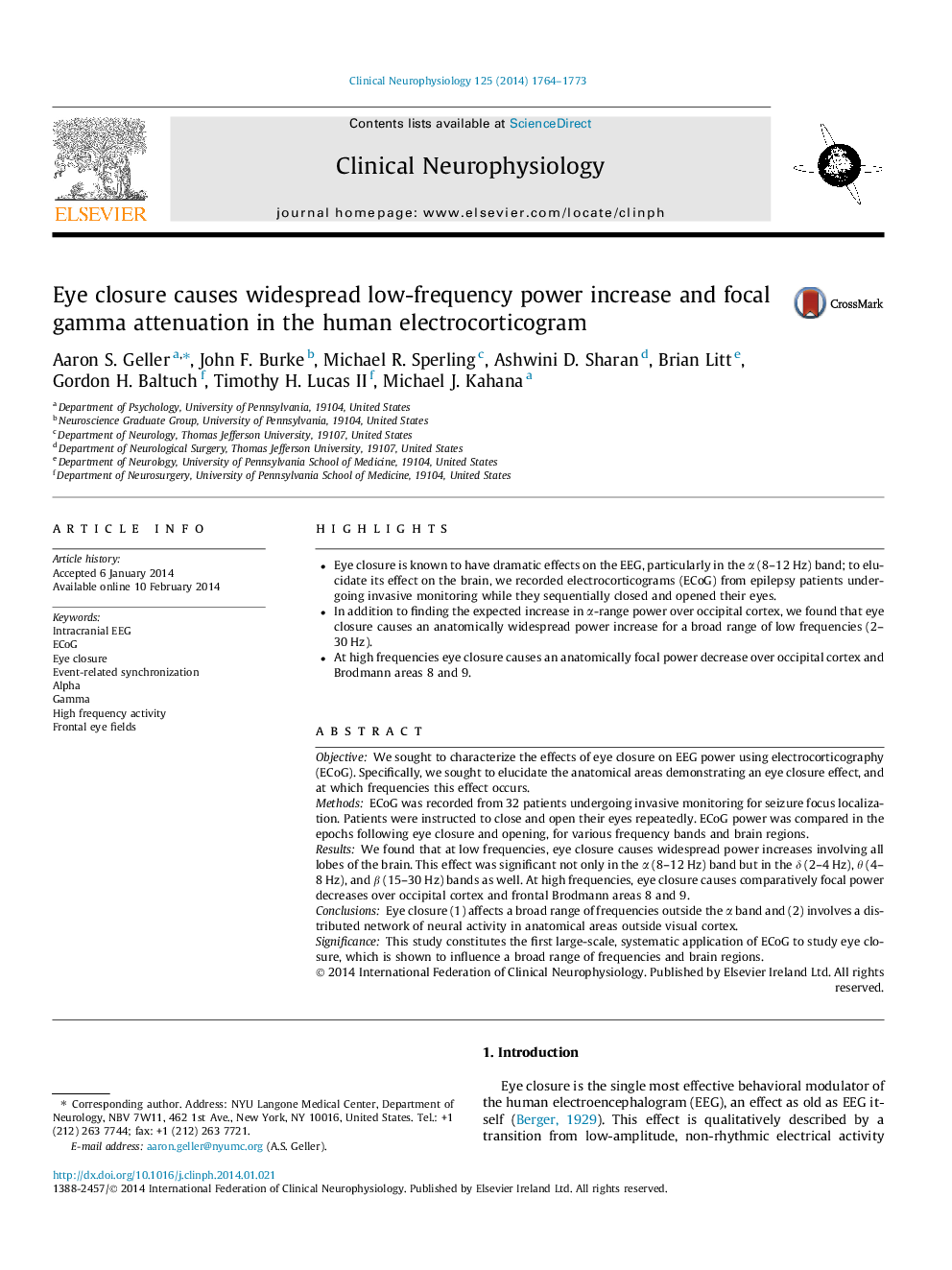| Article ID | Journal | Published Year | Pages | File Type |
|---|---|---|---|---|
| 3043174 | Clinical Neurophysiology | 2014 | 10 Pages |
•Eye closure is known to have dramatic effects on the EEG, particularly in the αα (8–12 Hz) band; to elucidate its effect on the brain, we recorded electrocorticograms (ECoG) from epilepsy patients undergoing invasive monitoring while they sequentially closed and opened their eyes.•In addition to finding the expected increase in αα-range power over occipital cortex, we found that eye closure causes an anatomically widespread power increase for a broad range of low frequencies (2–30 Hz).•At high frequencies eye closure causes an anatomically focal power decrease over occipital cortex and Brodmann areas 8 and 9.
ObjectiveWe sought to characterize the effects of eye closure on EEG power using electrocorticography (ECoG). Specifically, we sought to elucidate the anatomical areas demonstrating an eye closure effect, and at which frequencies this effect occurs.MethodsECoG was recorded from 32 patients undergoing invasive monitoring for seizure focus localization. Patients were instructed to close and open their eyes repeatedly. ECoG power was compared in the epochs following eye closure and opening, for various frequency bands and brain regions.ResultsWe found that at low frequencies, eye closure causes widespread power increases involving all lobes of the brain. This effect was significant not only in the αα (8–12 Hz) band but in the δδ (2–4 Hz), θθ (4–8 Hz), and ββ (15–30 Hz) bands as well. At high frequencies, eye closure causes comparatively focal power decreases over occipital cortex and frontal Brodmann areas 8 and 9.ConclusionsEye closure (1) affects a broad range of frequencies outside the αα band and (2) involves a distributed network of neural activity in anatomical areas outside visual cortex.SignificanceThis study constitutes the first large-scale, systematic application of ECoG to study eye closure, which is shown to influence a broad range of frequencies and brain regions.
